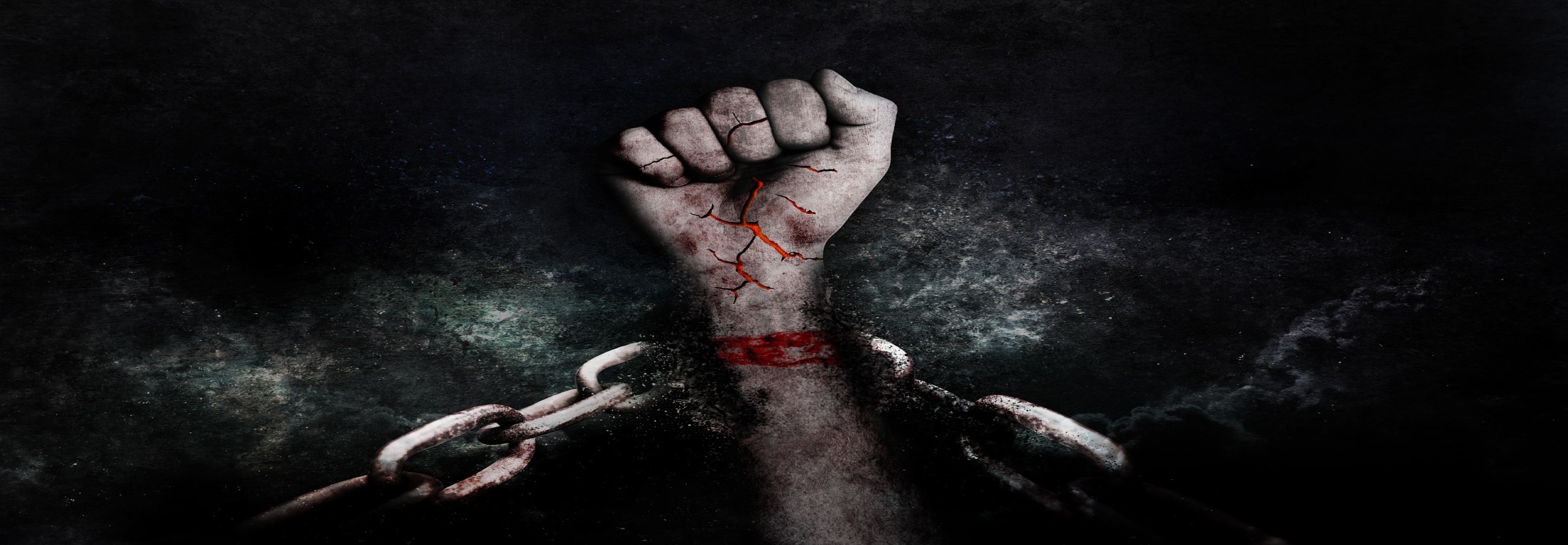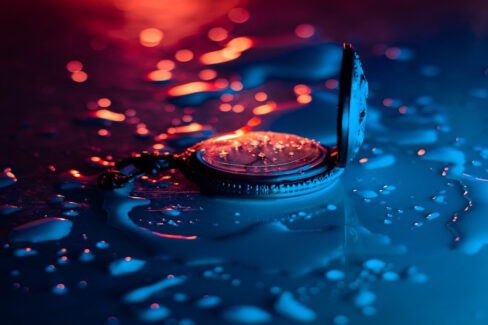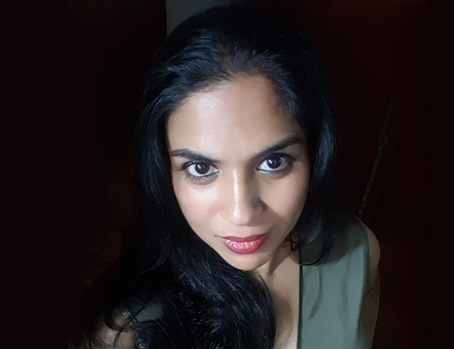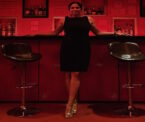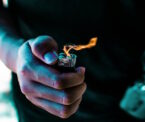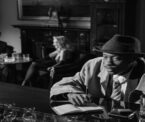Three Points of a Square
Upul walked upto me with a smile on his face. He was 24 years old. He had a gait that immediately signalled prosthetic limbs. I had heard his story before. Today I was going to capture it – on video and on tape – and I would then turn it into some marketing propaganda for a well oiled CSR project.
Upul invited us into his humble home – wattle & daub with the infamous “Balagiri dhosaya adha nemei heta” written in Sinhala over the entrance of the door. The sign was a way of warding off evil from one’s home.
A smiling and happy looking young woman walked out of the house with a baby in her arms. This was Mangala. Upul’s wife. And the baby was their son. They looked happy but there was an almost childlike innocence to both of them – they were still very young. Mangala was just 19 years old.
I turned to my colleague Seetha and said, “Please introduce birth control to these two – if not they will be popping like no tomorrow”. It was a fair warning – it’s easy to procreate. It’s not easy to nurture and feed. Seetha responded,
“I know men. But how to tell. I will see if I can talk to the girl at least”.
Yes, the girl. We can’t talk to men about procreation – certainly not from rural Sri Lanka. But Upul was not an unapproachable young man. Still. Who knows what traditional ideals traverse their minds. We can’t be accused of instilling ‘Colomba’ values into them.
We set up with the crew and decided to have Upul speak against the backdrop of the paddy fields and the well in the background.
The well had a significant role to play in this story. After micing Upul we got him to stand and tell us his story as the camera lens stared at him in an almost hungry stance.
“I am Upul from this town in Moneragala. I joined the Sri Lanka Army when I was 18 years old because I wanted money to send my younger sister to school. My father died and my mother had no way of earning for us so I decided to join the army. It was in 2008 and it was at the height of the war. We were trained for 3 months and sent to the warfront. While in combat, I got caught to a land mind and it blew up both my legs.
I was brought back home and I was in a wheel chair. It took 3 months for my wounds to heal. And I did not want to live anymore. So I decided to end my life. And I was trying to jump into this well over here…”
Upul’s voice broke at this point and the tears rolled down his cheeks. His younger sister who lived next door had come to watch the filming and she was listening as he spoke and she looked upset as well.
The camera continued to stare at him, almost daring him to stop. Shooting at him with its intrusion into an emotional moment.
“I wanted to end it all but my friend saw me and he shouted for the others. They all ran over and stopped me from jumping in my wheelchair into the well. They tried telling me life was worth living and that I should not lose heart.
What worth living?? I went to the army to earn money for my sister to go to school. She did not even complete school. Instead I lost my legs and I had nothing to live for. I lost everything…”
Upul continued to speak almost lost in his memories but with the tears rolling down.
“I waited like this a month and I tried again to jump into the well because I could not deal with it anymore. Again I was stopped, this time by my neighbours. No one understood my pain.
Finally I was given the chance of getting two artificial legs – that would at least help me be mobile and not be stuck in a wheelchair. I grew up running and playing cricket. Without my legs – what was my future? At least with the artificial limbs I could walk they said. And so I got these prosthetic limbs and I learned to walk with them. It is not the same but I am still learning to adjust. At least I am not in a wheelchair like an invalid”.
Upul paused and looked away as he thought back on his life. I was disturbed but not surprised. Listening to someone recount why they wanted to die by suicide is not easy. You have to be at your lowest to want to do that. Seetha was staring too. Seetha was from the hill country – she knew what hardships were.
Upul continued his story after a pause. The camera crew said nothing. Most were from the suburbs of Colombo but hailed from good old villages from around the country. Their lives had changed after coming to the city. Had they remained in their village – this too may have been their reality.
“I learned to live life with my artificial limbs. And then this foundation donated a modified three wheeler that I could use to drive around and run hires. And so I was given a livelihood”.
Upul had said the magic words required for the clip. But it was lost on all of us who were just listening.
“My marriage to Mangala was an arranged one and I found happiness with her. And now we have our baby and a family life to look forward to. My dark days are behind me now. I hope we can have a good future”.
I was listening. And thinking. This war has ruined so many lives. This young boy from the village who knew nothing about politics had taken to arms to fund his family. And now he had no legs.
After we finished up, we had lunch with another of the beneficiaries. He had made a delicious rice and curry meal – you cannot compare the taste of the food they make in the village to the drivel we consume in Colombo. It is also made with a lot of effort and in a way, gratitude, because food is a symbol of hospitality in our country; Which is why we drink milk powder with sugar and a touch of tea in most places which is made with a lot of enthusiasm and a desire to please.
The thoughts of food took me to another meeting we had. This was one in Vakarai. I remember going with our team to meet more beneficiaries of benevolence in order to document their gratitude.
Vakarai is home of the Eastern Veddhas of Sri Lanka. As usual, precious few know they exist because we are so caught up in our Sinhala – Tamil wars that we forget that there are other ethnic, religious groups in our country who are very much Sri Lankan too.
We were going to meet Shantha. Shantha was a former LTTE child soldier, now an adult man, ‘rehabilitated’ and given a job. Shantha was tall, smart and rather reserved. He spoke Tamil and so Seetha and my colleague Sam were going to translate.
I was a little curious – in true Colombo fashion I had never met an LTTE soldier, let alone a former child soldier. Shantha told us and the black lens, his story.
We were seated in a small shack – with the sounds of the ocean in the background. The shack was located in front of an army run village which led to the Vakarai beach. The beach is pure white – gorgeous. There were rumours of the islands being bought by the Rajapaksas. Of course.
Sam and Seetha looked at Shantha who was seated quietly and said “Sollanga” which means speak or tell, in Tamil.
“When the LTTE came to our house, it was in the night. They told my parents that I must be sacrificed for the cause. My mother and father begged, pleaded and cried but they took me and went. I was 12 years old. We were taken to a place where there were other boys like me. We were then taken on a boat to another place.
On the boat they gave us apples and Kandos chocolate. I had never eaten these things. They were luxuries we could not afford and had no access to. They were tasty and so we ate.”
I listened in shock. I had not realised the psychological impact of food. I should know – food is my greatest vice. It is psychologically connected to my childhood. I understood how food could be easily used for many things – in this instance – to lure.
“We were taken to a place where there was a training camp. We were taught to fight with guns. And we were taught to hate the Singala people”.
Yes. Teach hate to children. I was fuming inside. One thing I will never forgive is the abuse of children. Children should not pay the price for the mistakes of adults. The LTTE’s cause was just but their means were not.
Shantha continued.
“We were sent to fight. Later on we were assigned to the Sea Tigers. And our leader was Karuna.”
Ah, the famous Karuna. Smart man – escaped the guillotine and is now in politics. I guess that’s how the cookie crumbles.
“You know we are Verdha people. We are not Tamil. Our birth certificates say Verdha. But because of the cause, they changed it to Tamil so that the census would show more Tamil people in the East.”
I was intrigued by this bit of news. Never did I know that Verdhas or Veddah were distinct from other ethnicities. But it made sense. They were native people. Long before any Sinhala or Tamil ethnic identities were formed – they were the indigenous inhabitants of Lanka.
“You know, Karuna is a Verdha”
Shantha dropped this piece of information and all of us were silent for a minute with a look of shock on Sam and Seetha’s face as he said it and they translated.
The camera continued unfazed. Capturing this revelation – shooting Shantha as he was dropping this bombshell.
I thought to myself – if Karuna is Verdha, he has far greater claim to this land than any Sinhala or Tamil inhabitant. Oops. Controversial. I shall not say it but I could not help but think it.
Shantha continued his story. After the end of the war, he had been sent for rehabilitation on the government programme. He was now engaged in some work in his village for which the foundation had given him a machine.
I looked at Shantha. I thought of how he was brainwashed as a child with apples and Kandos chocolates and I wondered if one can ever be free of the conditioning of one’s childhood. He was literally trained to kill.
In the same way, Upul was trained to kill.
Young boys and now men who were conditioned to kill each other. Why? To please the desires of politicians? To fight for a ‘cause’? Whose cause? And at what price?
What were their lives? They both came from poor villages. They were both young and easy to brainwash. One was a child. One was a teenager. Their lives appear “normal” now but I know what childhood trauma does. It never leaves.
How will they ever live after this?
I thought back on my own life. I was from Colombo. Privileged. Yes but one can’t hate oneself for being privileged. I had lived my version of the war in Colombo worrying about bus bombs, suicide bombers and thanking the stars that my father had left the army when he did. At least he was alive. Not maimed but yes damaged.
Damaged because he watched his friend get blown up next to him. Damaged because those are not things that medals, decorations or slaps on the back can heal. Damaged because it broke his marriage, it broke his life and it left him an empty shell.
“You will never know the fire in my head”.
Yes I will never know. He left an officer because he refused to play politics. And now he sits at home, a prisoner of his own memories with a regular inflow of delusion that keeps him occupied.
Where are the great PR machines churning Ranaviruwa talk? Do they know what it is like out there? No they never did.
But they tom tommed the drums of ethnic hatred and fanned the flames of communal insecurity for political gain.
And who is left to blame?
Between the ‘Singala murderers’ and the ‘Dhemala Kotiyas’ there is hardly much difference. But you will not see this when you are fed rhetoric by preening politicians who line their nests with blood stained feathers.
Political shits. They should all rot in hell.
I sat quietly on the steps of the little apartment I called home. It was Colombo 7 but we lived like in a little shanty – complete with leaking roofs, rats, pole cats and the occasional garandiya that meandered in. This was my grandmother’s boon to her divorced daughter – banishment from the main house to a former balcony aka a flat. My view was the neighbour’s house – it had been an office, a house, a university and now God knows what. Part of it was covered by the tamarind tree growing in our garden.
The house was empty and the time was evening. We had returned from Moneragala last night and today I went into work coz I worked for a nutcase. He wanted the captured footage edited and the script finalised within a day. He had to please the boss and show him magical feats of accomplishment. Snort.
I slowly got up because one never knew what creepy crawlies the steps would unveil. I had no desire for my bum to be bitten by anything. Life was complex enough.
I heard the distant sound of a siren signalling an ambulance taking a patient to hospital. I said a silent prayer for whoever it was and went back inside the flat. I had to pack the bags for our next trip – Batticaloa. The land of the singing fish and home of Mafaz, another beneficiary. Two done, one more to go.

